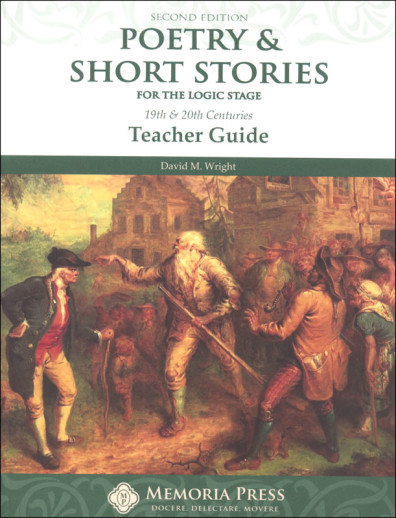Well-organized, user-friendly, and academically challenging, these guides equip students to be active readers through thoughtful and purposeful study. Formatted similarly, each guide includes vocabulary, comprehension and discussion questions, quotations, composition, and literary analysis in increasing depth. Grade Level Packages are available for your convenience and align to the Memoria Press Literature and Poetry books grade level packages. Components are also available separately. For additional literature options from Memoria Press, please see the Alternate Literature or the Classical Literature options.
StoryTime Treasures and More StoryTime Treasures incorporate real books, rather than controlled readers, to advance phonics and reading skills, once a student has learned phonics. Student Guides at this level are different compared to the 2nd grade and up Literature Guides. Featuring a horizontal orientation for ease of writing, worksheets focus on vocabulary and comprehension. There's writing involved (7/16" lines with dotted midline) but the top binding makes it easy for either right or left-handed students. The teacher needs to take a quick peek at two pages at the beginning that give the plan for the Word Study, Read, Comprehension, and Language (introductory grammar) segments of each lesson. StoryTime covers four classic children's books in 14 lessons and 2 optional Christmas lessons. More StoryTime provides another 15 lessons and seven children's books. Teacher Guides for StoryTime and More StoryTime include a model lesson plan, overview, daily assignments for each lesson (which highlight phonics and vocabulary activities) and answers to the student pages. Packages are available for StoryTime Treasures and More StoryTime Treasures which include both student and teacher guides as well as the literature resources. Packages of literature resources only are also available. Optional Lesson Plans are available.
Beginning in 2nd grade, Literature Guides are organized around the Trivium with activities grouped into Pre-Grammar, Grammar (preparation and presentation); Logic (reasoning with facts, elements, and features) and Rhetoric (expression). Although there is consistency from lesson to lesson, the extra activity provided with each lesson is quite varied. Background information on the author and book is also included.
Student Guides for Grades 2-8 are consumable. Each book/story/poem is approached in much the same way, although with increasing depth. Vocabulary, comprehension/discussion questions, quotations, composition, and literary analysis activities are covered. Beginning in Grade 9, the guides transition to a smaller formatted (6" x 9") non-consumable format. Students are encouraged to create a personal Literature Notebook. Currently, The Divine Comedy Student Guide is the last remaining full-size consumable literature guide available.
Teacher Guides provide valuable teaching information and full-text answer keys at all grade levels. Discussion talking points, reproducible quizzes and final tests (with answers) are included in numerous guides especially at the upper levels. The early grades differ a little bit in content in order to be more suitable for young learners.


